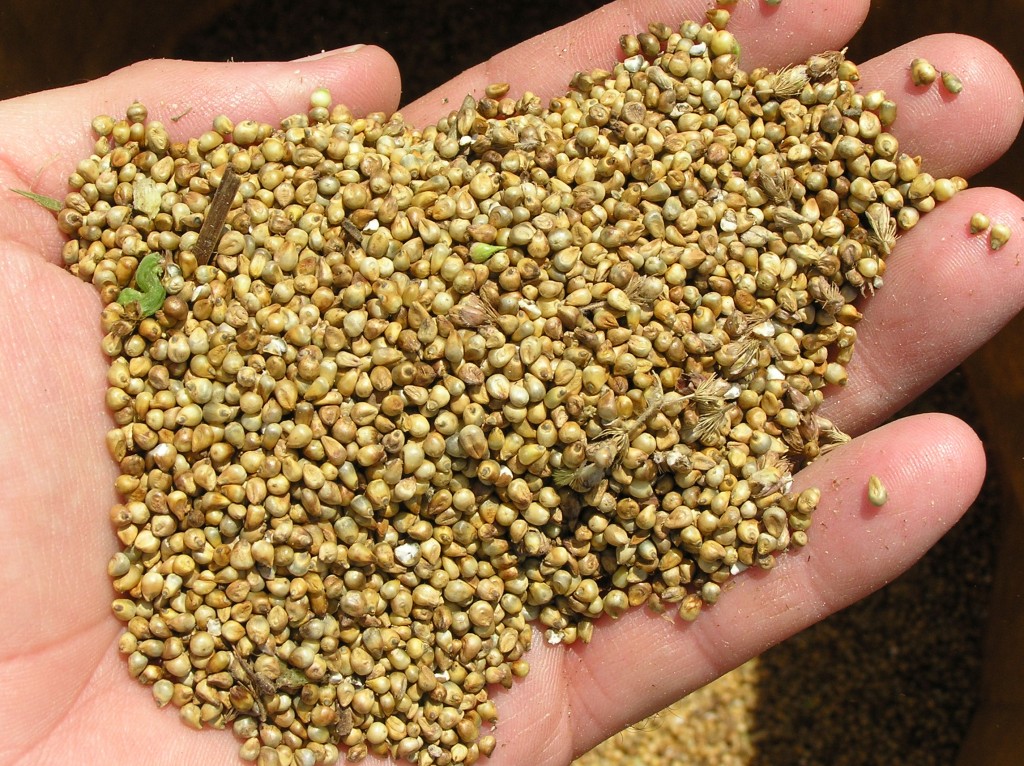A pregnant woman has to ensure that her diet provides adequate energy and nutrition for the baby for its proper growth and development. Looking at the nutrition content of Millet, it is considered as a perfect addition to a pregnancy diet. Let us find out more on the benefits of this super food on the health of a pregnant woman.
Nutritional composition of Millets
The nutritional composition of Millet shows that this food has abundance of thiamine, niacin, riboflavin, vitamin B6, folate and pantothenic acid. It assists in synthesis of carbohydrates and contributes towards the proper functioning of the central nervous system of the body.
Antioxidants present in this grain prevents a lot of health issues caused due to inflammation in the body. Being a rich source of magnesium, zinc, iron, phosphorus, and manganese, millet improves muscle and bone health in a woman. It also boosts the immunity power, enhances mood of a person.
Is it safe to eat millet during pregnancy?
Yes. Millet is absolutely safe when consumed in right amounts and under guidance of your doctor. The nutritional profile of millet validates that it is a super food and packed with all those nutrients that is required by a pregnant woman. Being a rich in fiber and gluten-free, it is remarkable in managing body weight and relieving from constipation. These are the two very important things that is expected in a pregnancy diet.
Millet has good amounts of good carbohydrate, fiber, protein, B vitamins, and low fat that makes it an excellent cholesterol-lowering food too. Millet serves as a healthy alternative for pregnant woman, who have sensitivity or intolerance towards wheat.
Benefits of making Millet a part of pregnancy diet
Millet exhibits all those properties that makes it a must-include food in the pregnancy diet. Let us learn more about these reasons in detail.
High protein content: There is 11 grams of protein per 100 grams of uncooked Millet and 3.5 grams of protein per 100 grams of boiled Millet. This makes it a high protein food that is a great inclusion in pregnancy diet. Consuming this food regularly in the diet helps in promoting stronger muscles and bones.
Rich in fiber: Due to rich fiber content, millet is great addition in the diet. It is a natural remedy to treat one of the common discomforts in pregnancy i.e., constipation. In addition to boosting digestive system, the abundance of fiber in Millet also promotes colon health. This helps in easy, regular and effortless bowel movements in a person.
Cholesterol-lowering properties: The high fiber content in Millet also helps in bringing down low density cholesterol, triglyceride and total cholesterol levels and increasing high density cholesterol levels in a person. Millet also contains two natural compounds as tocotrienol, and phytosterols that aids in reducing blood cholesterol levels in a person.
Rich source of magnesium: Daily dietary consumption of magnesium lowers risk of heart attack in those who suffer from diabetes and atherosclerosis. Millet enhances the performance of vital organs in the body such as heart. Its magnesium content enhances the rate of absorption of calcium in bones. This help in alleviating signs of allergy, enhance mood, and lessen occurrence of migraine attacks.
Good source of phosphorus: The phosphorus content in millet is observed to increase the bone mineral density. This ensures that millet promotes stronger, and healthier teeth and bones of the fetus and pregnant woman. Foods that are rich in phosphorus contribute towards hormonal balance. It is a natural cure for loss of appetite and abnormalities related to heartbeat.
No gluten: Millet is devoid of gluten. This makes it safe for consumption of pregnant woman who suffers from gluten sensitivity, and Celiac disease.
Good amount of B vitamins: Millet has abundance of vitamin B1, vitamin B2, vitamin B3, vitamin B5, vitamin B6 and vitamin B9. It is good to be consumed during pregnancy as it prevents defects in the spinal cord in newborn babies. B vitamins are critical for promoting digestive health, helping in synthesizing macro-nutrients and neurotransmitters that regulate appetite, mood, productivity and sleep in a pregnant woman.
Improved cardiovascular and diabetes health: Millet assists in management of diabetes and cardiovascular ailment by increasing insulin sensitivity. This results in efficient use of glucose. The high fiber content in it reduces blood sugar levels and stretches the time taken for digestion of carbs. This also helps in preventing weight gain in pregnant woman.
Conclusion
Millet is a nutritious cereal that is packed with the goodness of several nutrients needed by a pregnant woman. When consumed regularly, as a part of a varied, balanced and healthy diet, it contributes a lot in promoting overall wellbeing of the baby and the pregnant women.
Tags: Am pregent can i drink kunu gyada
